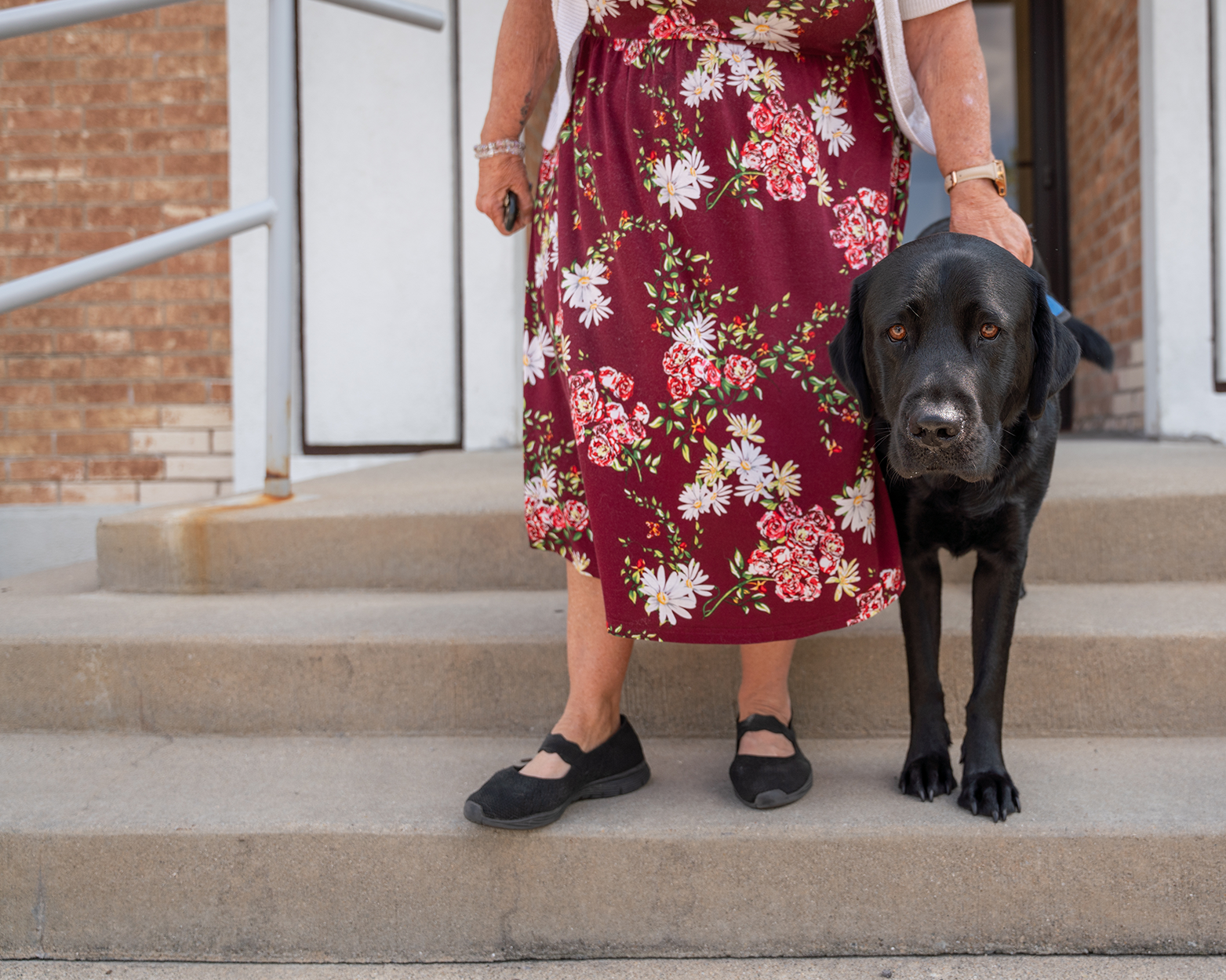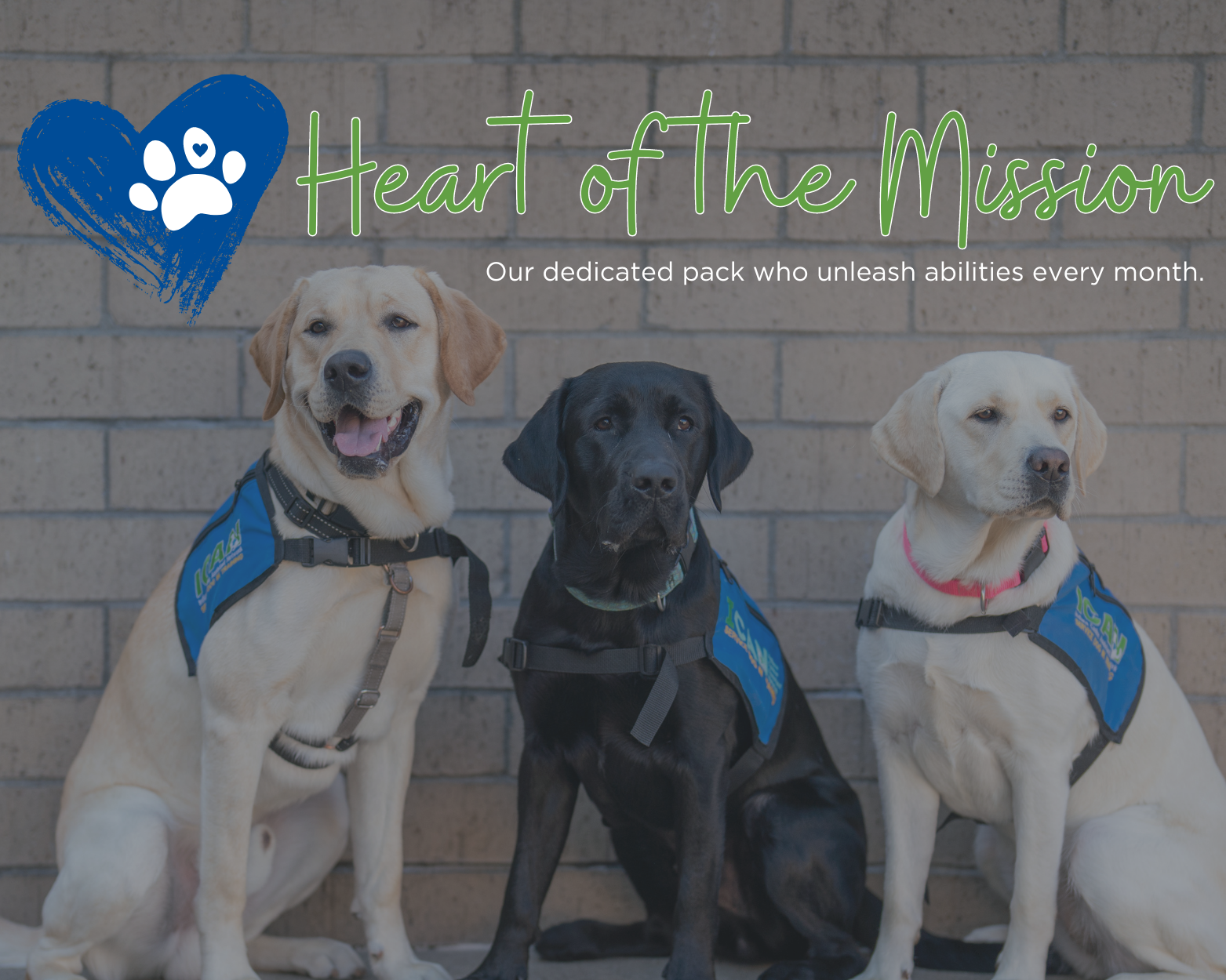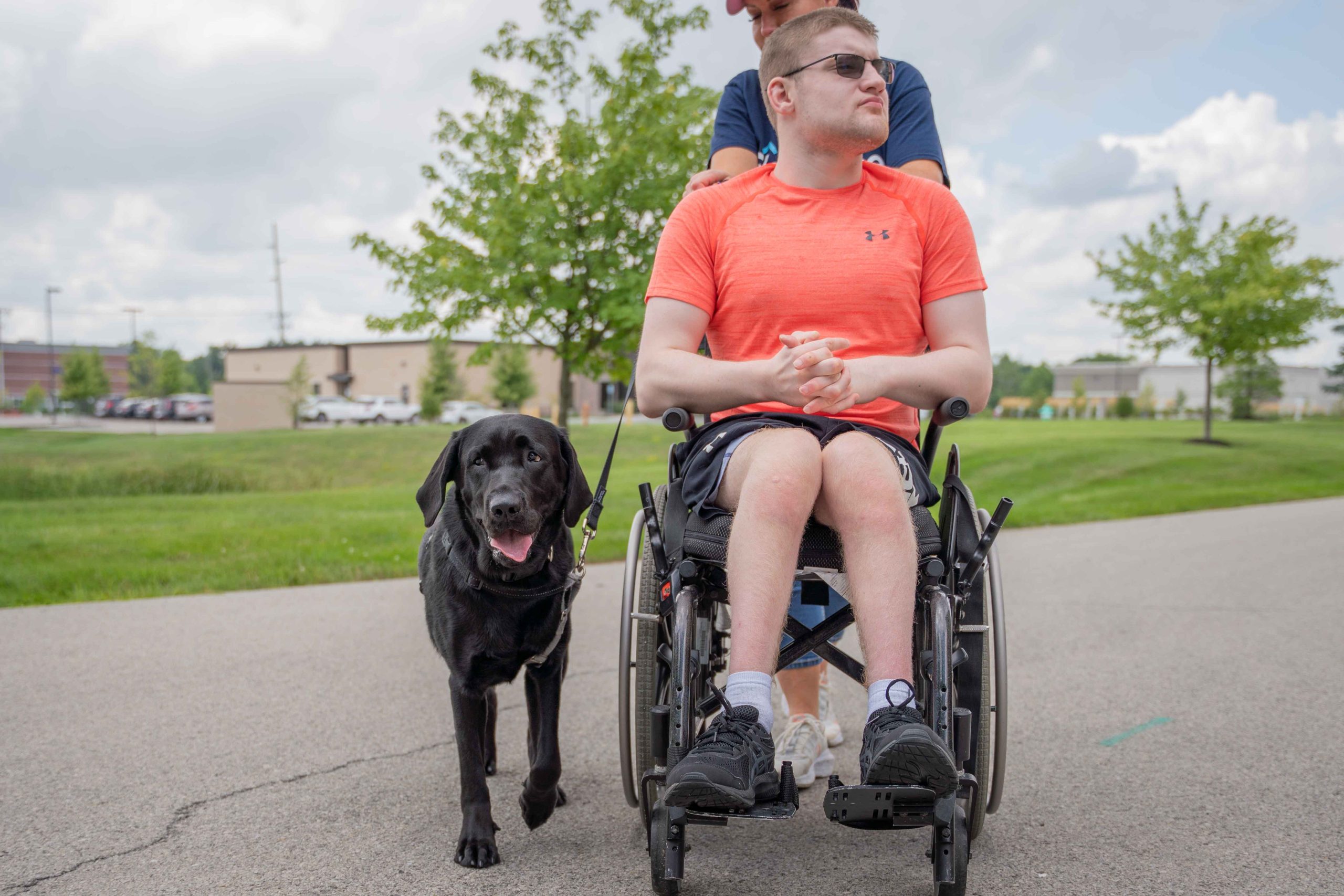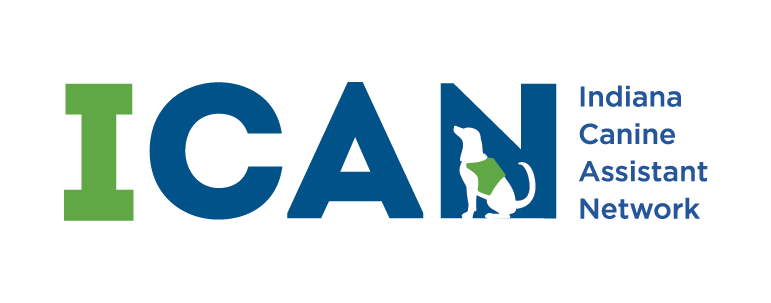

Be part of the mission.
Nearly 61 million Americans live with a disability that significantly impacts them each day.
Children and adults with disabilities often struggle with stability and social acceptance.
We're here to help them find hope, worth, and independence.
Our accredited service dog training and Indiana placement program provides safety, friendship, and independence for children and adults with disabilities.
Additionally, our program helps inmate handlers move beyond their mistakes, find purpose, gain hope, and learn the skills they need to successfully return to the community — all by training service dogs that help someone else.
It costs $25,000 to train one dog, however, clients are only responsible for 10% of this cost.
Please note: We cannot place a dog in a home that intends to train the canine using an electric fence.
The cost of a service dog includes supporting the client and dog during its time in service, which averages eight to 10 years. ICAN trains and places the following types of service dogs:
We train mobility assistance dogs to perform helpful tasks for children and adults who use wheelchairs or have mobility challenges. Some of the trainable tasks include:
- Picking up and retrieving named objects
- Opening and closing doors and cabinets
- Pushing automatic door and elevator buttons
- Turning light switches on and off
- Safely crossing a parking lot with you or your child
- Tugging off your socks or jacket
- Acting as a brace to help you get up from your couch or bed
Please note: Placement requires you to be able to manage your mobility assistance dog on your own when out in public. Generally, individuals must be at least 16 years of age before they're mature enough to do so.
A service dog can impact your recovery in ways you never thought possible. A veteran assistance dog can assist with mobility, interrupt a nightmare, alert you if you’re showing signs of anxiety, and give you a sense of peace as you heal from your trauma.
Our comforting and capable service dogs for veterans are trained to:
- Help overcome mobility challenges
- Comfort and alert when you’re feeling anxious
- Supplement therapy to aid in recovery
We train our facility service dogs with the skills necessary to work with professionals in schools, nursing homes, rehabilitation centers, and courtrooms.
With a dog assisting your students, patients, or clients, you can help them overcome challenges with confidence and experience unconditional love.
A skilled facility dog can:
- Enter your facility to assist a specific person or group
- Unite a community by helping break barriers
Our in-home skilled companion dogs do NOT have public access or ADA coverage, but they DO graduate with the same skills as our service dogs.
An in-home skilled companion dog can help you overcome daily challenges, find independence, and rely less on your family and friends. These dogs are trained to:
- Assist with everyday household tasks
- Retrieve a phone or push a medical alert button in an emergency
- Provide companionship



